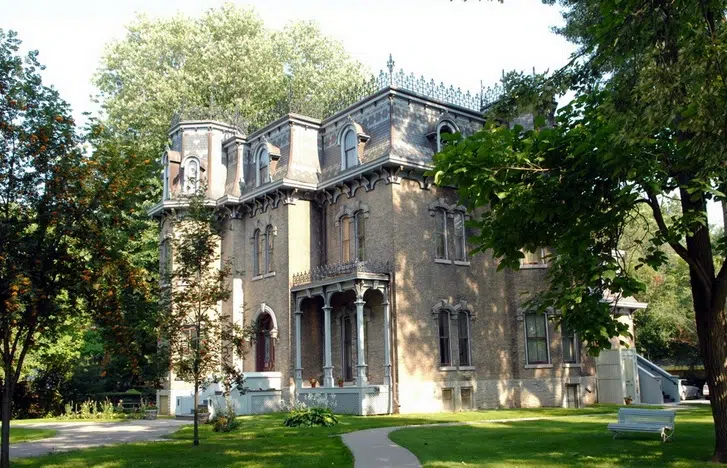In honour of National Indigenous History Month, Glanmore National Historic Site is eager to welcome Métis artist Tracey-Mae Chambers who will be constructing a site-specific art installation as part of a project entitled #hopeandhealingcanada on June 14.
Hope and healing, the guiding themes of Tracey-Mae’s artistic works, refer directly to the artist’s goal of broaching the subjects of decolonization* and reconciliation, as a response to the overwhelming discoveries made of the remains of Indigenous children buried at former Residential Schools.
In a time of collective grief from these discoveries, and in a time of global pandemic where society has felt so fractured, Tracey-Mae’s public art pieces are meant to serve as a symbolic reconnection of people, communities and the environment. Crafted with organic materials (red wool and beeswax), Tracey Mae has travelled across North America since 2021 installing over 75 unique textile sculptures at institutions including museums, galleries, universities, public spaces and former Residential Schools.
The project #hopeandhealingcanada engages visitors with inquisitiveness; asking them to reflect on the deeper meanings of “connection”, and how we connect to our environment, our personal histories and one another. This simultaneously begs the question, how do we all collectively as communities move forward and heal together from traumatic events, both past and present?
“Glanmore is excited to welcome Tracey-Mae Chambers and to take part in #hopeandhealingcanada. As a National Historic Site it is important that we share in the goals of this project and ask ourselves how we can help foster connections within our own community though historic interpretation, storytelling and programming.” – Danielle McMahon-Jones, Exhibit Development Coordinator.
Tracey-Mae Chambers will be installing a unique textile sculpture on Glanmore’s veranda on June 14, 2022. It will remain in place for visitors to view until the end of September.
For more information about #hopeandhealingcanada, visit https://www.traceymae.com/
*Decolonization refers to the process of centering the histories, stories, cultures and customs of Indigenous peoples as the basis of how we understand the origins of our National history. In basic terms, it is essentially a recalibration of how we understand the origins of our communities, which first began with Indigenous peoples before European settlers arrived. When undertaken, it can provide paths for connection, learning and healing.




